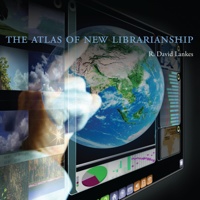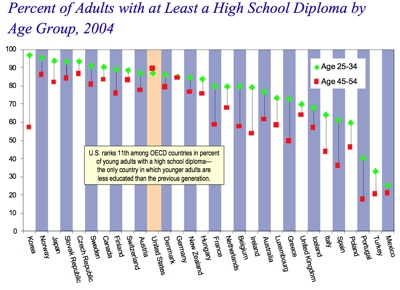A year ago I wrote about resolving to make 2010 the year of the librarian. I think we did a pretty good job. I talk to more and more librarians who feel, as I do, that the tide of self-loathing and questioning our future is (slowly) subsiding. It is being replaced by a sense of cautious optimism that libraries and librarians will continue. The very real fear remains that there may not be as many of either, or that budgets will continue to be cuts to be sure. But the more existential crisis seems to be settling. The question of “will there be librarians” is being replaced by “what will we do in the years and decades to come?”
Some focus on the tools we will use (“what is the impact on libraries of ebooks?”), some focus on the skills we will need. Still others, like me, focus on why we do what we do (it’s all about learning).
In the coming year you will hear many ideas and “certainties” about our future, and our needs. You will hear the inevitable backlash and conservatism of those who fear change. You will read blogs and tweets and Facebook updates full or quotes and links and videos. Some things will scare us, some appall us, and some inspire. But if all you do is hear them, or watch them, or read them, then we all have failed – both the progressives, and the conservatives. For words, images, and all the media in the world that does not lead to action is useless.
The true test of the future of librarianship is not in my presentations, or the words I write, but in the actions I perform and enable. Inspiration without execution is a false drug – it deludes us into thinking ourselves involved.
If all I do is preach and then return to my ivory tower, then I am a fraud. And Ii you hear my words and yell “amen,” but do nothing then you too are a fraud. Agree, disagree, yell, fight, prove me wrong, prove me right, try something else just do something.
If there is anything that this past year has shown us it is that there is a bright future for librarians, but it will not be delivered to us. We break usage records and they cut our budgets. We show up in the newspapers and on TV and some still question our value. No, we cannot simply continuing our current path and expect salvation and restored budgets. We must act – change – improve.
So here is our resolution for this year – act. Make one positive change every day. Start small: fix the signs in your library. Start small: enforce a 30 minute time limit on all meetings. Start small: replace fines with food donations for the needy. Then get bigger: read 10 blogs each day. Then get brave: map every service you spend money on to the needs of your community – kill any service that doesn’t map. Get brave: leave your buildings on a regular basis for a space in the community.
Then get active: start your website from scratch, and center it on the members not your stuff; convene a town meeting with your members. Start a community mentoring program where you loan out professors, and hackers, and accountants, and lawyers. Then hunt down every post on my blog, or that of the Annoyed Librarian and tell us where we are wrong or right.
If 2010 was the year of the librarian, then let’s make this the year of the librarian in your face. The librarian proactively helping members. The librarian holding administration to account. The librarian demanding more from LIS education. The librarian on a first name basis with the business community. The librarian doing office hours in academic departments. The librarian in the face of their community always helpful, always pleasant, always a radical agent of positive change.


